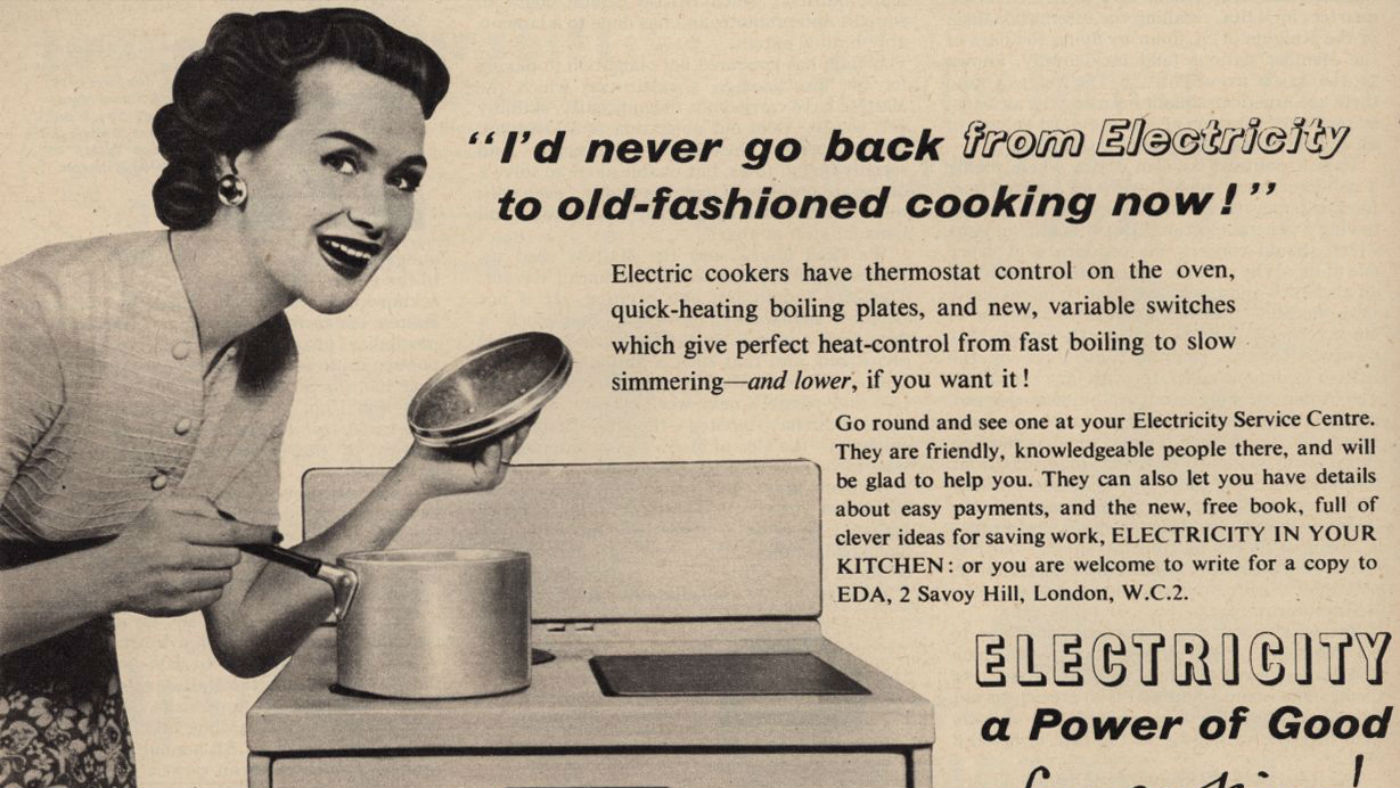Gender stereotypes banned from UK adverts: how the ban works
Advertising watchdog brings in new measures to stop commercials reinforcing harmful stereotypes

A free daily email with the biggest news stories of the day – and the best features from TheWeek.com
You are now subscribed
Your newsletter sign-up was successful
Adverts that “contribute to inequality in society” by reinforcing gender stereotypes have been banned by the UK’s advertising watchdog.
The Advertising Standards Authority (ASA) warned the industry six months ago that it intended to introduce the new rules, which take effect today, and says it is pleased with the response from advertisers so far.
What exactly has been banned?
The Week
Escape your echo chamber. Get the facts behind the news, plus analysis from multiple perspectives.

Sign up for The Week's Free Newsletters
From our morning news briefing to a weekly Good News Newsletter, get the best of The Week delivered directly to your inbox.
From our morning news briefing to a weekly Good News Newsletter, get the best of The Week delivered directly to your inbox.
The ASA will no longer allow advertisers to depict “harmful gender stereotypes” or scenarios that are likely to cause “serious or widespread offence”.
This means that an advert which, for instance, portrays men as worse at housework than women could fall foul of the new rules.
The BBC reports that the new rules are designed to prevent “specific harms” so it will still be possible to portray traditional gender roles, such as men doing DIY or women shopping. Gender stereotypes can also still be portrayed if the ad challenges them.
What scenarios might not be allowed?
A free daily email with the biggest news stories of the day – and the best features from TheWeek.com
The ASA gives some examples. It will not allow advertisers to depict a man or woman failing at a task if it is implied that their gender is the reason for their ineptitude: for instance, a man who can’t change nappies or a woman who can’t parallel park a car.
The ASA also says it will take action against advertisements that poke fun at men for doing a stereotypically female job or vice versa. It also identified ads that suggest to mothers that cleanliness or looking good are more important than emotional wellbeing as problematic.
How will the ban be enforced?
All ads must be pre-cleared by the ASA, but anything that falls into a grey area is likely to be passed – and the watchdog will then wait to see if there are any complaints. These will then be dealt with on a case-by-case basis.
Why has the ban been introduced?
The ASA published its review into gender in advertising – Depictions, Perceptions and Harm – in 2017 and the new rules reflect its findings after showing focus groups ads and asking them what they thought about the depiction of gender. One of the ads used was a 2017 television commercial for Aptamil baby milk, which showed a girl growing up to be a ballerina while the boys became an engineer and a mountain climber.
The ASA said some parents in the focus groups “queried why these stereotypes were needed, feeling that they lacked diversity of gender roles and did not represent real life” and “felt strongly” that the ad had a negative impact.
The watchdog decided that some stereotypes were harmful because they might “restrict the choices, aspirations and opportunities of children, young people and adults”. It added that “these stereotypes can be reinforced by some advertising, which plays a part in unequal gender outcomes”.
-
 The 8 best TV shows of the 1960s
The 8 best TV shows of the 1960sThe standout shows of this decade take viewers from outer space to the Wild West
-
 Microdramas are booming
Microdramas are boomingUnder the radar Scroll to watch a whole movie
-
 The Olympic timekeepers keeping the Games on track
The Olympic timekeepers keeping the Games on trackUnder the Radar Swiss watchmaking giant Omega has been at the finish line of every Olympic Games for nearly 100 years
-
 Sydney Sweeney's 'great jeans': why American Eagle ad is so controversial
Sydney Sweeney's 'great jeans': why American Eagle ad is so controversialTalking Point Series of adverts featuring American actress Sydney Sweeney cause storm around race and eugenics
-
 The magician who secretly smashed the Magic Circle's glass ceiling
The magician who secretly smashed the Magic Circle's glass ceilingUnder The Radar Sophie Lloyd lurked in the all-male society by posing as a teenage boy for nearly two years, but was expelled after revealing her true identity
-
 FKA Twigs and Jeremy Allen White – the tale of two Calvin Klein ads
FKA Twigs and Jeremy Allen White – the tale of two Calvin Klein adsTalking Point Her advert was banned by the advertising watchdog while his caused a 'breathless response' after going viral
-
 ‘Sexist’ banned TV ads: how Philadelphia and VW fell foul of new rules
‘Sexist’ banned TV ads: how Philadelphia and VW fell foul of new rulesIn Depth Advertising watchdog’s crackdown triggers concerns of ‘morality policing’
-
 Bond girl Eva Green says 007 should always be a man
Bond girl Eva Green says 007 should always be a manIn Depth ‘It doesn’t make sense for him to be a woman,’ said the French actress
-
 The worst advertising campaigns of 2017
The worst advertising campaigns of 2017In Depth From Pepsi to Nivea to McDonald’s: this year's biggest missteps from some of the world’s biggest brands